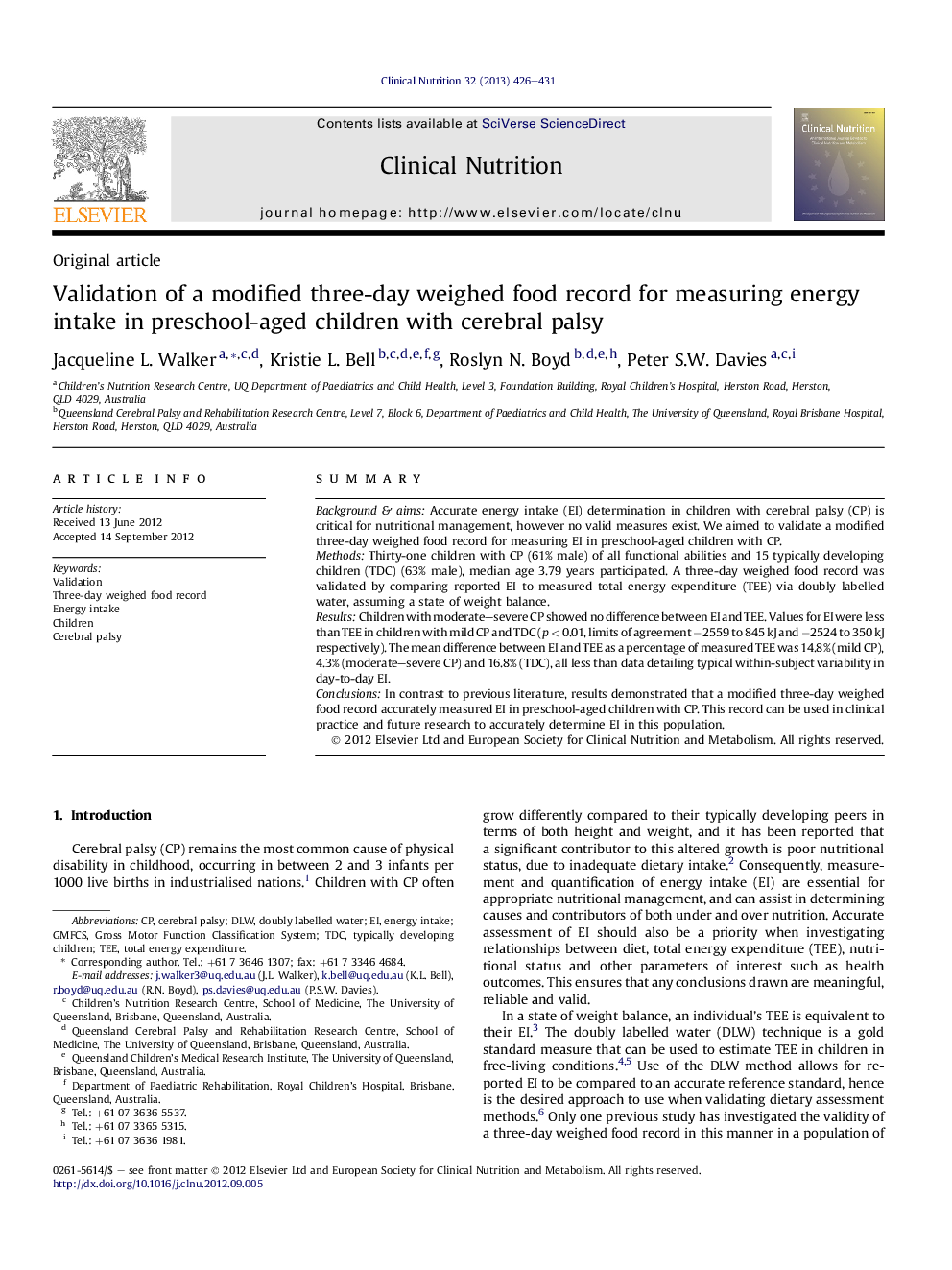| Article ID | Journal | Published Year | Pages | File Type |
|---|---|---|---|---|
| 2686825 | Clinical Nutrition | 2013 | 6 Pages |
SummaryBackground & aimsAccurate energy intake (EI) determination in children with cerebral palsy (CP) is critical for nutritional management, however no valid measures exist. We aimed to validate a modified three-day weighed food record for measuring EI in preschool-aged children with CP.MethodsThirty-one children with CP (61% male) of all functional abilities and 15 typically developing children (TDC) (63% male), median age 3.79 years participated. A three-day weighed food record was validated by comparing reported EI to measured total energy expenditure (TEE) via doubly labelled water, assuming a state of weight balance.ResultsChildren with moderate–severe CP showed no difference between EI and TEE. Values for EI were less than TEE in children with mild CP and TDC (p < 0.01, limits of agreement −2559 to 845 kJ and −2524 to 350 kJ respectively). The mean difference between EI and TEE as a percentage of measured TEE was 14.8% (mild CP), 4.3% (moderate–severe CP) and 16.8% (TDC), all less than data detailing typical within-subject variability in day-to-day EI.ConclusionsIn contrast to previous literature, results demonstrated that a modified three-day weighed food record accurately measured EI in preschool-aged children with CP. This record can be used in clinical practice and future research to accurately determine EI in this population.
